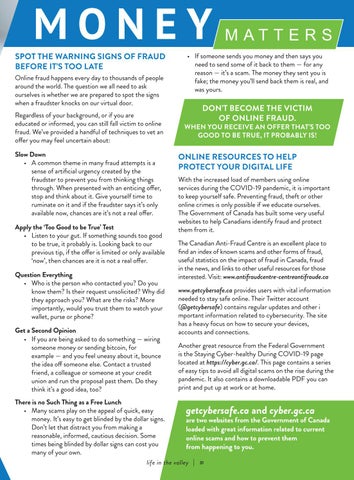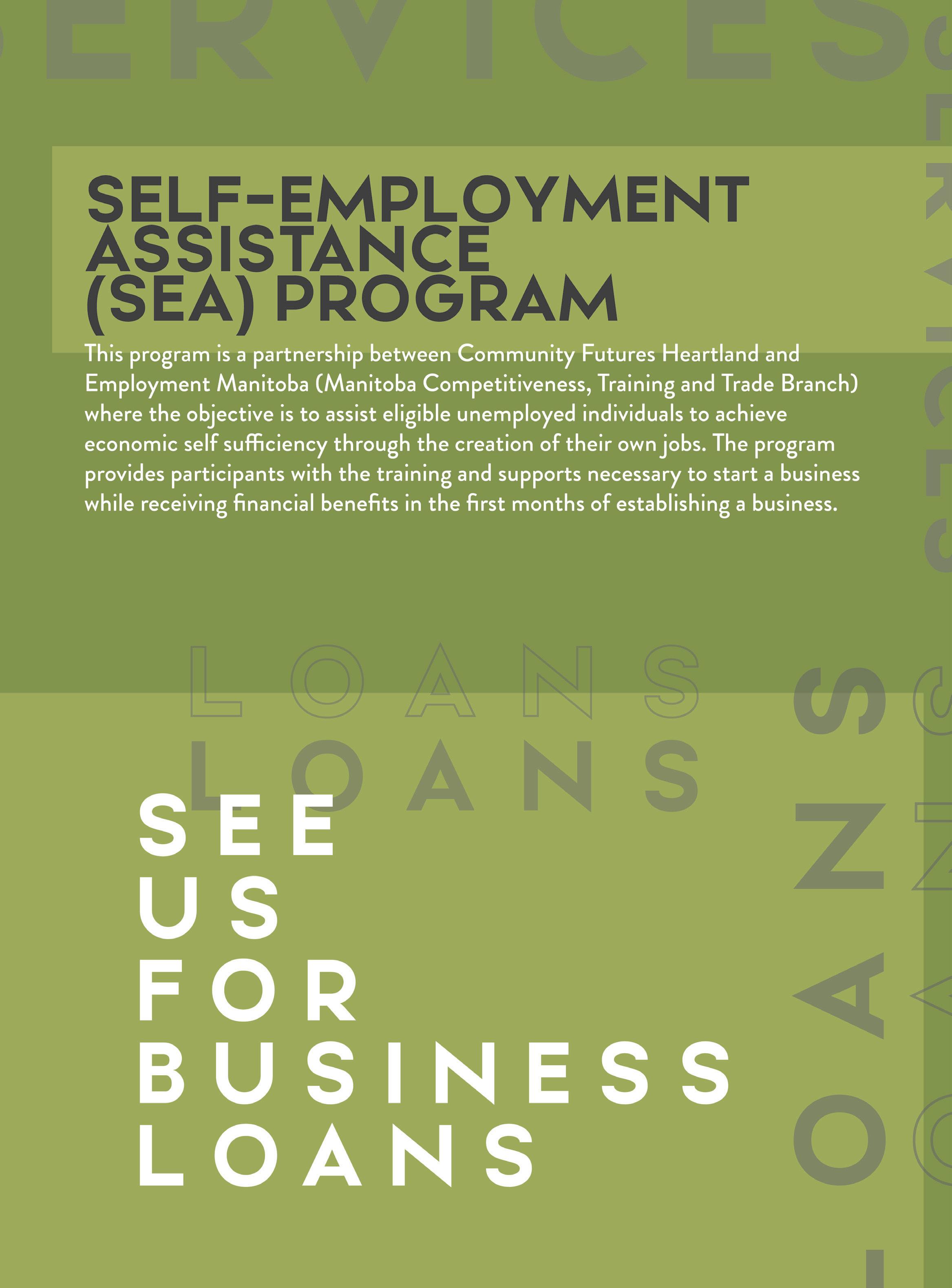MONEY
SPOT THE WARNING SIGNS OF FRAUD BEFORE IT’S TOO LATE Online fraud happens every day to thousands of people around the world. The question we all need to ask ourselves is whether we are prepared to spot the signs when a fraudster knocks on our virtual door.
MATTERS
• If someone sends you money and then says you need to send some of it back to them — for any reason — it’s a scam. The money they sent you is fake; the money you’ll send back them is real, and was yours.
Regardless of your background, or if you are educated or informed, you can still fall victim to online fraud. We’ve provided a handful of techniques to vet an offer you may feel uncertain about: Slow Down • A common theme in many fraud attempts is a sense of artificial urgency created by the fraudster to prevent you from thinking things through. When presented with an enticing offer, stop and think about it. Give yourself time to ruminate on it and if the fraudster says it’s only available now, chances are it’s not a real offer. Apply the ‘Too Good to be True’ Test • Listen to your gut. If something sounds too good to be true, it probably is. Looking back to our previous tip, if the offer is limited or only available ‘now’, then chances are it is not a real offer. Question Everything • Who is the person who contacted you? Do you know them? Is their request unsolicited? Why did they approach you? What are the risks? More importantly, would you trust them to watch your wallet, purse or phone? Get a Second Opinion • If you are being asked to do something — wiring someone money or sending bitcoin, for example — and you feel uneasy about it, bounce the idea off someone else. Contact a trusted friend, a colleague or someone at your credit union and run the proposal past them. Do they think it’s a good idea, too? There is no Such Thing as a Free Lunch • Many scams play on the appeal of quick, easy money. It’s easy to get blinded by the dollar signs. Don’t let that distract you from making a reasonable, informed, cautious decision. Some times being blinded by dollar signs can cost you many of your own.
ONLINE RESOURCES TO HELP PROTECT YOUR DIGITAL LIFE With the increased load of members using online services during the COVID-19 pandemic, it is important to keep yourself safe. Preventing fraud, theft or other online crimes is only possible if we educate ourselves. The Government of Canada has built some very useful websites to help Canadians identify fraud and protect them from it. The Canadian Anti-Fraud Centre is an excellent place to find an index of known scams and other forms of fraud, useful statistics on the impact of fraud in Canada, fraud in the news, and links to other useful resources for those interested. Visit: www.antifraudcentre-centreantifraude.ca www.getcybersafe.ca provides users with vital information needed to stay safe online. Their Twitter account (@getcybersafe) contains regular updates and other i mportant information related to cybersecurity. The site has a heavy focus on how to secure your devices, accounts and connections. Another great resource from the Federal Government is the Staying Cyber-healthy During COVID-19 page located at https://cyber.gc.ca/. This page contains a series of easy tips to avoid all digital scams on the rise during the pandemic. It also contains a downloadable PDF you can print and put up at work or at home.
getcybersafe.ca and cyber.gc.ca
are two websites from the Government of Canada loaded with great information related to current online scams and how to prevent them from happening to you.
life in the valley
31






